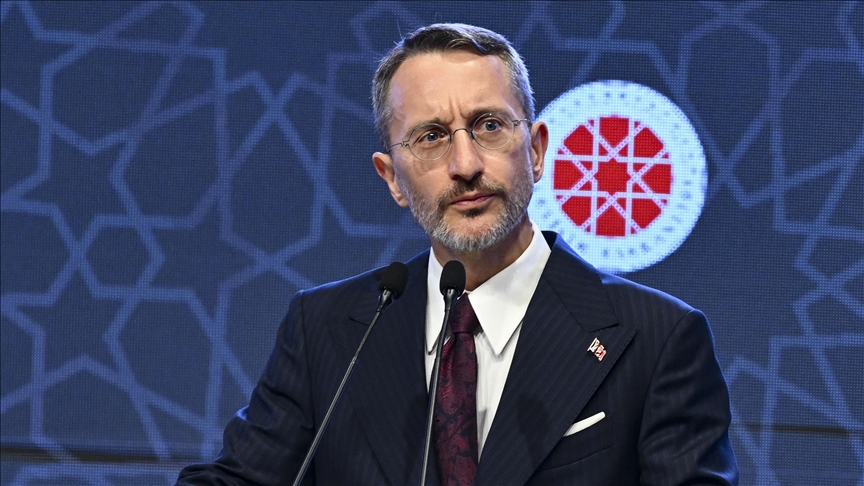

By Anadolu Agency
WASHINGTON
Türkiye’s Communications Director Fahrettin Altun on Friday emphasized the importance of “effective communication” in dealing with global crises.
“In an age where natural disasters, pandemics, or political conflicts often transcend borders, coordinating responses regionally and globally is critically important,” Altun said in a video address to Stratcom Public Forum, which is being held in New York under the theme “Strategic Communication in the Era of Global Uncertainties.”
Altun said while the need for cooperation is clear, achieving effective coordination and communication remains a “major challenge.”
Despite governments, international organizations and non-governmental organizations trying to work together in any major crisis, Altun said they might differ in priorities, organizational structures, and operational methods.
“These differences often lead to inefficiencies and waste of resources,” he added, saying to overcome these obstacles, “robust frameworks for collaboration” must be established before crises emerged.
Turning to the effective communication during a crisis, Altun said: “Timely and effective communication can mean the difference between life and death.
“In times of crises, people at risk turn to communication channels because they are desperate for any information. In those times, identifying the right channels to send informative and accurate information becomes truly critical.”
‘Increase international cooperation’
Clear and consistent messaging across different cultures and languages must be ensured as well, he said.
“One of the key challenges is to ensure that communication reaches all affected parties, including those in remote or digitally isolated areas,” Altun said, adding pre-established channels of communication both at the local and international level becomes “critical.”
Stressing that using social media in crisis communication is a “tricky business,” he said: “It can provide real-time updates and mobilize resources quickly, but it also can spread misinformation like a wildfire.”
About emerging technologies, including artificial intelligence, Altun warned against the “serious risk” of using AI-powered tools since it could lead to problems like data privacy violations or biased decision-making.
“In conclusion, the future of crisis response depends on our ability to increase international cooperation and effective communication.
“We must leverage both traditional methods and emerging technologies. But this requires a proactive approach that fosters partnerships, employs clear communication strategies, and fosters digital innovation,” he said, calling for international collaboration and information sharing.
We use cookies on our website to give you a better experience, improve performance, and for analytics. For more information, please see our Cookie Policy By clicking “Accept” you agree to our use of cookies.
Read More